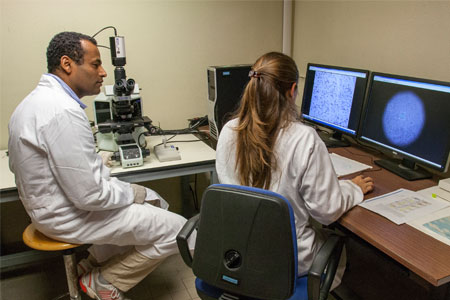- Autori:
-
Triebner, Kai; Accordini, Simone; Calciano, Lucia; Johannessen, Ane; Benediktsdóttir, Bryndís; Bifulco, Ersilia; Demoly, Pascal; Dharmage, Shyamali C; Franklin, Karl A; Garcia-Aymerich, Judith; Gullón Blanco, José Antonio; Heinrich, Joachim; Holm, Mathias; Jarvis, Debbie; Jõgi, Rain; Lindberg, Eva; Martínez-Moratalla, Jesús; Muniozguren Agirre, Nerea; Pin, Isabelle; Probst-Hensch, Nicole; Raherison, Chantal; Sánchez-Ramos, José Luis; Schlünssen, Vivi; Svanes, Cecilie; Hustad, Steinar; Leynaert, Bénédicte; Gómez Real, Francisco
- Titolo:
-
Exogenous female sex steroids may reduce lung ageing after menopause: A 20-year follow-up study of a general population sample (ECRHS)
- Anno:
-
2019
- Tipologia prodotto:
-
Articolo in Rivista
- Tipologia ANVUR:
- Articolo su rivista
- Lingua:
-
Inglese
- Formato:
-
A Stampa
- Referee:
-
Sì
- Nome rivista:
- Maturitas
- ISSN Rivista:
- 0378-5122
- N° Volume:
-
120
- Intervallo pagine:
-
29-34
- Parole chiave:
-
Hormone replacement therapy (HRT); Lung function; Menopause; Reproductive aging; Sex hormones
- Breve descrizione dei contenuti:
- OBJECTIVES: Menopause involves hypoestrogenism, which is associated with numerous detrimental effects, including on respiratory health. Hormone replacement therapy (HRT) is often used to improve symptoms of menopause. The effects of HRT on lung function decline, hence lung ageing, have not yet been investigated despite the recognized effects of HRT on other health outcomes. STUDY DESIGN: The population-based multi-centre European Community Respiratory Health Survey provided complete data for 275 oral HRT users at two time points, who were matched with 383 nonusers and analysed with a two-level linear mixed effects regression model. MAIN OUTCOME MEASURES: We studied whether HRT use was associated with the annual decline in forced vital capacity (FVC) and forced expiratory volume in one second (FEV1). RESULTS: Lung function of women using oral HRT for more than five years declined less rapidly than that of nonusers. The adjusted difference in FVC decline was 5.6 mL/y (95%CI: 1.8 to 9.3, p = 0.01) for women who had taken HRT for six to ten years and 8.9 mL/y (3.5 to 14.2, p = 0.003) for those who had taken it for more than ten years. The adjusted difference in FEV1 decline was 4.4 mL/y (0.9 to 8.0, p = 0.02) with treatment from six to ten years and 5.3 mL/y (0.4 to 10.2, p = 0.048) with treatment for over ten years. CONCLUSIONS: In this longitudinal population-based study, the decline in lung function was less rapid in women who used HRT, following a dose-response pattern, and consistent when adjusting for potential confounding factors. This may signify that female sex hormones are of importance for lung ageing.
- Id prodotto:
-
105930
- Handle IRIS:
-
11562/989660
- ultima modifica:
-
15 novembre 2022
- Citazione bibliografica:
-
Triebner, Kai; Accordini, Simone; Calciano, Lucia; Johannessen, Ane; Benediktsdóttir, Bryndís; Bifulco, Ersilia; Demoly, Pascal; Dharmage, Shyamali C; Franklin, Karl A; Garcia-Aymerich, Judith; Gullón Blanco, José Antonio; Heinrich, Joachim; Holm, Mathias; Jarvis, Debbie; Jõgi, Rain; Lindberg, Eva; Martínez-Moratalla, Jesús; Muniozguren Agirre, Nerea; Pin, Isabelle; Probst-Hensch, Nicole; Raherison, Chantal; Sánchez-Ramos, José Luis; Schlünssen, Vivi; Svanes, Cecilie; Hustad, Steinar; Leynaert, Bénédicte; Gómez Real, Francisco,
Exogenous female sex steroids may reduce lung ageing after menopause: A 20-year follow-up study of a general population sample (ECRHS)
«Maturitas»
, vol.
120
,
2019
,
pp. 29-34
Consulta la scheda completa presente nel
repository istituzionale della Ricerca di Ateneo 








